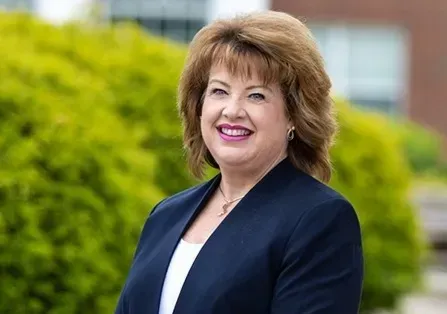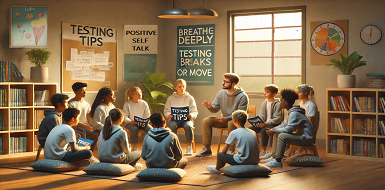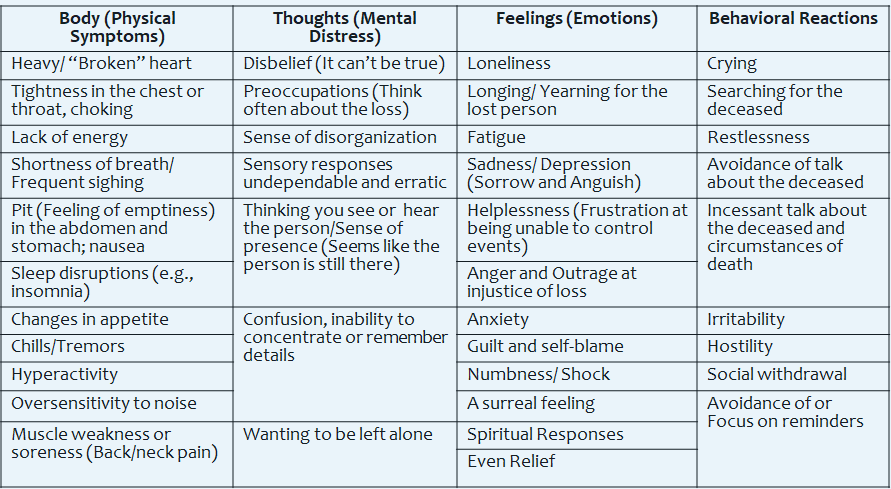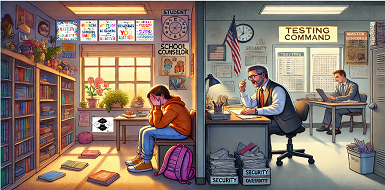So, What Is a School Counselor?
Defining Our Critical Role for Students

A school counselor is far more than just someone students go to when they need help with scheduling or career advice. Over the years, the role of a school counselor has evolved into one of the most integral parts of a student’s support system. School counselors are trained professionals who guide students academically, support their emotional well-being, and prepare them for life after school, whether that means entering the workforce, pursuing higher education, or another path.
But to truly understand what a school counselor is, it’s important to look at the different facets of their role and the impact they have on both individual students and the school environment as a whole.
The Comprehensive Role of a School Counselor
School counselors operate in three main areas: academic support, mental health and emotional well-being, and career and college readiness.
1. Academic Support
One of the primary roles of a school counselor is to help students achieve academic success. This means more than just assisting with class scheduling or graduation requirements. School counselors work with students to develop study habits, manage time effectively, and set realistic academic goals. They help students identify their strengths and areas for improvement, providing personalized support to ensure students stay on track.
School counselors also serve as advocates for students, ensuring that they have access to resources and opportunities that meet their needs. Whether it's coordinating with teachers for special education services or working with parents to create individualized academic plans, counselors are deeply involved in making sure every student has the tools to succeed.
2. Mental Health and Emotional Well-Being
The emotional and mental health needs of students have become more apparent over time, and school counselors are at the forefront of addressing these concerns. Counselors provide a safe and confidential space where students can talk about issues they may be facing, including anxiety, depression, stress, family challenges, bullying, and social pressures.
In many cases, school counselors are the first point of contact for students experiencing mental health struggles. They are trained to offer short-term counseling and crisis intervention, but they also work with outside mental health professionals when necessary, providing referrals to therapists or psychologists if students need long-term support.
Counselors play a vital role in fostering a positive school climate. They lead initiatives on bullying prevention, mental health awareness, and stress management, creating an environment where students feel safe and supported.
3. Career and College Readiness
Preparing students for life after school is one of the key responsibilities of a school counselor. This involves more than just helping students apply to college. Counselors work closely with students to explore different career paths, understand the educational requirements for various professions, and prepare for the transition from school to the workforce or higher education.
School counselors offer college and career assessments, help with resumes and job applications, and assist students in identifying internships or job shadowing opportunities. For students planning to attend college, counselors guide them through the application process, help with financial aid and scholarships, and provide personalized advice based on their academic interests and goals.
Whether a student is planning to attend a four-year university, enter a trade school, or go directly into a career, the school counselor provides the guidance and resources needed to make informed decisions.
The Advocate, Leader, and Collaborator
School counselors are not just resources for students; they are also leaders and advocates within the school. They collaborate with teachers, administrators, parents, and other professionals to ensure the school environment is one that supports all students. Whether it’s advocating for a student’s need for accommodations or working with school staff to implement mental health initiatives, counselors act as liaisons between students and the broader school community.
Counselors lead initiatives that address important issues like equity, access, and inclusion. They are responsible for ensuring that every student, regardless of background or circumstances, has the opportunity to succeed academically and personally. Counselors also work on a systems level to address barriers to learning, such as socioeconomic challenges, family instability, and language barriers, helping students overcome obstacles that might impede their success.
The ASCA National Model: Guiding School Counselors
School counselors operate under the ASCA (American School Counselor Association) National Model, which provides a framework for creating a comprehensive school counseling program. This model emphasizes the counselor’s role in promoting academic, career, and social-emotional development, as well as fostering a supportive and equitable school environment.
The ASCA National Model outlines how school counselors can be most effective by focusing on three domains:
- Academic Development: Helping students achieve their full academic potential and ensuring they are prepared for post-secondary education or career opportunities.
- Career Development: Supporting students in exploring career options and planning for their futures beyond school.
- Social-Emotional Development: Assisting students in developing the interpersonal skills, emotional regulation, and coping strategies they need for success in school and life.
What a School Counselor is Not
While school counselors are multifaceted professionals, their role is often misunderstood. School counselors are not:
- Disciplinarians: Counselors are not involved in disciplining students. Their role is to support students emotionally and academically, not to enforce rules or impose punishments.
- Test Administrators: While counselors may assist with coordinating standardized tests, their primary role is not to administer or focus on testing logistics.
- Administrative Assistants: Counselors should not be burdened with tasks like data entry, scheduling, or registrar duties, as this takes them away from their critical responsibilities of supporting students’ mental health, academic success, and future planning.
The Impact of a School Counselor
So, what is a school counselor? At the core, a school counselor is an advocate for students, a leader in creating a positive school environment, and a professional dedicated to supporting students’ academic, emotional, and career growth.
The impact of a counselor is often long-lasting, as they help shape the educational journey of each student they work with. By addressing academic challenges, supporting emotional well-being, and helping students navigate their post-school pathways, school counselors play a central role in ensuring student success.
In essence, a school counselor is a guide — someone who helps students not only survive school but thrive in it and beyond. By offering support in so many vital areas of a student’s life, they are a cornerstone of the school’s ability to meet the needs of every student.
I am a school counselor turned counselor educator, professor, and author helping educators and parents to build social, emotional, and academic growth in ALL kids! The school counseling blog delivers both advocacy as well as strategies to help you deliver your best school counseling program.

I'm a mother, grandmother, professor, author, and wife (I'll always be his). Until October 20, 2020, I lived with my husband, Robert (Bob) Rose, in Louisville, Ky. On that awful day of October 20,2020, my life profoundly changed, when this amazing man went on to Heaven. After Bob moved to Heaven, I embraced my love of writing as an outlet for grief. Hence, the Grief Blog is my attempt to share what I learned as a Counselor in education with what I am learning through this experience of walking this earth without him. My mission is to help those in grief move forward to see joy beyond this most painful time.










